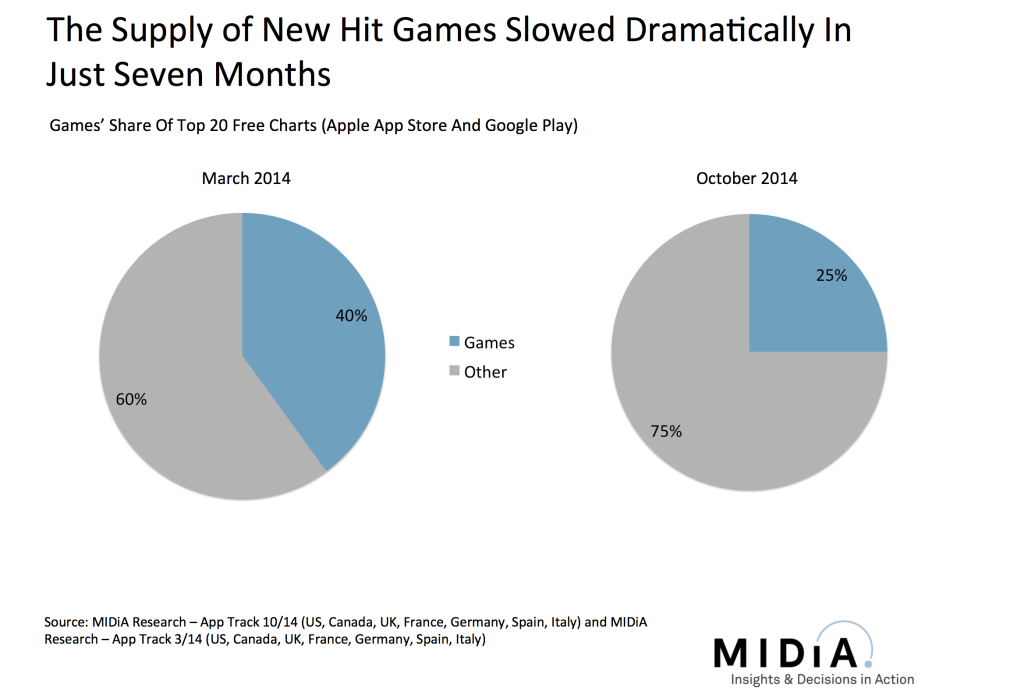The App Bubble Burst: The Coming Mobile App Economy Correction

The mobile app economy is one of the most important developments in the paid content marketplace but its success may be built on shaky foundations. In May 2014 we warned about the potential risks of the superstar app economy, with too few apps taking most of the revenue. Revenue is dominated by games, making mobile apps a de facto games economy, with the pursuit of the standout success of a handful of app developers creating bubble economics. Yet many of those pacesetters have struggled to come up with follow up hits that meet, let alone surpass, their previous successes. It is now clear that the sustainability of the current mobile app games market, and by implication the broader app economy, cannot be taken for granted.
The warning signs lie in the divergence between the ‘Free’ and ‘Top Grossing’ charts. The majority of mobile app revenues comes from in app purchasing in free games so the free charts are a forward looking indicator of where future grossing revenue will come from and thus reveal what is coming next. We conducted a 6 month update to the MIDIA Global App Tracker and found the following:
The legacy app effect: All top 5 grossing apps across iOS and Android are still Games but these are predominately legacy apps - four out of five were published more than a year ago. These apps are clinging onto their chart positions despite the fact their new audience acquisition – i.e. free app downloads - has in many cases, fallen off a cliff. In the case of the third Top Grossing app ‘Game of War: Fire Age’ its free ranking is a full 210 places below.Even fewer new hits on the horizon: Games’ share of the Top 20 Free charts fell from 40% to 25% between March 2014 and October 2014, a 38% decrease. The Games’ category is quite simply not keeping up with the pace in the free charts.Moving beyond the one hit wonder: Many app developers are trying to move from being ‘publishers of a successful game’ to ‘successful games publishers’. In doing so, they are discovering that there is a world of difference between having a chart topping app and building a deep portfolio of differentiated and successful games’ titles in the way that established gaming industry giants, like EA Games, do. Mobile apps are rightly seen as a major disruptive threat to these gaming incumbents, but it is clear that the threat is still yet to be fully realised.The bubble environment of the app economy is clearly visible. Although the top line numbers don’t show the burst quite yet, the change is coming:
The app bubble will burst: The mobile app economy’s over dependence on single-hit factories, and the way in which these companies have starved other mobile game companies of oxygen, has helped create shaky foundations for the wider mobile app market. If they fail, they fail big. With the new audience flow slowing so dramatically for the big titles, time is running out.Realignment rather than collapse: The bubble bursting does not mean an end of the sector, but instead a realignment similar to that caused by the dot com bubble burst. The shake out will leave a more sustainable market. But it is also an important opportunity to correct some of the underlying problems such as discovery. Solving app discovery will be key for unlocking long term sustainable revenue growth. Without it, the market app economy will simply not be able to reap the benefits of the inevitable correction it’s heading towards.

The discussion around this post has not yet got started, be the first to add an opinion.